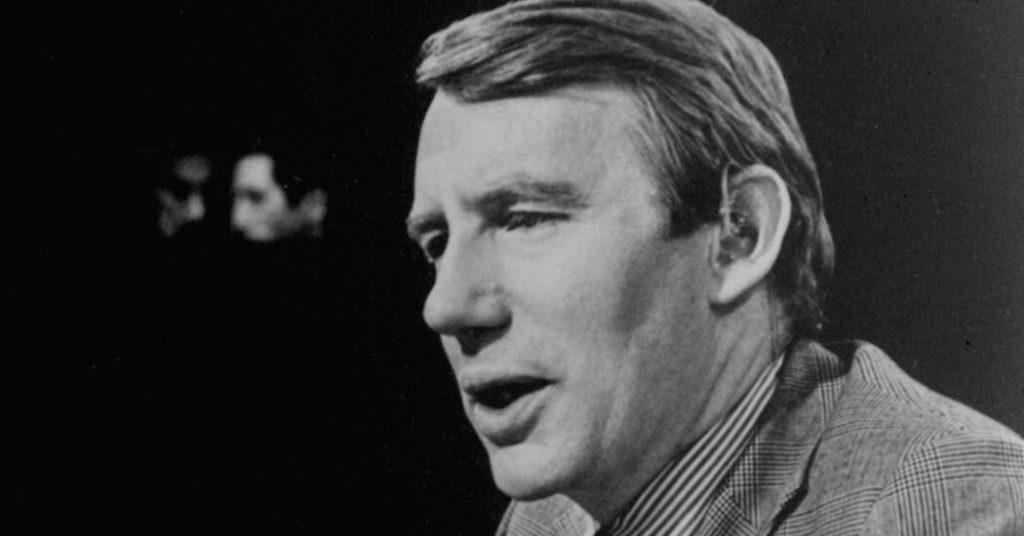Robert MacNeil, the accomplished Canadian-born journalist who co-anchored “The MacNeil/Lehrer NewsHour” on PBS for over two decades, passed away at the age of 93 in Manhattan. His daughter Alison MacNeil confirmed the news of his passing. Rejecting the flashy style of commercial American networks, MacNeil brought with him a more serious and evenhanded approach to news coverage derived from his time at the BBC. His pairing with Jim Lehrer during the Senate Watergate hearings led to the creation of the enduring collaboration that became the highly acclaimed “The MacNeil/Lehrer NewsHour.”
MacNeil’s intense privacy in public stood in stark contrast to his engaging and witty demeanor in private. His no-nonsense style of broadcasting was considered boring by some critics but was described by MacNeil as civilized discourse in the public interest. He prided himself on conducting interviews that were focused on the issues at hand rather than drawing attention to the interviewer. One of his memorable interviews was with Fidel Castro in 1985, where Mr. Castro reluctantly defended the Soviet invasion of Afghanistan due to his stance against the United States. MacNeil maintained that his program’s unsensational approach to weighty topics was crucial for fostering civilized discussion in a democratic society.
Born Robert Breckenridge Ware MacNeil in 1931 in Montreal, he was raised in Halifax, Nova Scotia. Before pursuing a career in journalism, he briefly ventured into acting before returning to school to focus on playwriting. A series of coincidences and opportunities led him to a successful career in journalism, first at Reuters and then NBC News in London, where he covered significant events like wars in Africa, the Cuban missile crisis, and the construction and dismantling of the Berlin Wall. In 1971, MacNeil joined PBS and began his long-standing tenure on public television.
Throughout his career, MacNeil’s commitment to delivering thoughtful and informative news in the public interest remained unwavering. His collaboration with Jim Lehrer on “The MacNeil/Lehrer NewsHour” provided a counterbalance to the sensationalized news content on commercial networks. Despite criticism, MacNeil believed in the importance of upholding journalistic integrity and approaching complex issues in a thoughtful and informative manner. He became an American citizen in 1997 and was appointed as an officer in the Order of Canada that same year. MacNeil continued to work with PBS even after retiring from the daily newscast, producing documentaries and writing novels and memoirs.
In his later years, MacNeil faced controversy when featuring his grandson’s story on autism on the “NewsHour.” Criticism arose when his daughter questioned a possible link between vaccines and autism, a sentiment MacNeil qualified with public health authorities’ views. Though this controversy marred his reputation slightly, MacNeil’s contributions to journalism and commitment to the principles of his craft remained steadfast. He continued writing and working with PBS, leaving behind a legacy of distinguished journalistic integrity and dedication to providing the public with informative and substantive news coverage.
Robert MacNeil’s impact on journalism, particularly in the realm of public television, was significant. His commitment to presenting news in a serious, thoughtful manner that honored the public’s intelligence and fostered civic discourse set a standard for journalistic integrity. Despite criticisms and controversies, MacNeil’s legacy as a journalist and broadcaster dedicated to upholding democratic values and providing the public with quality news coverage remains an enduring testament to his profound influence on the field of journalism.








